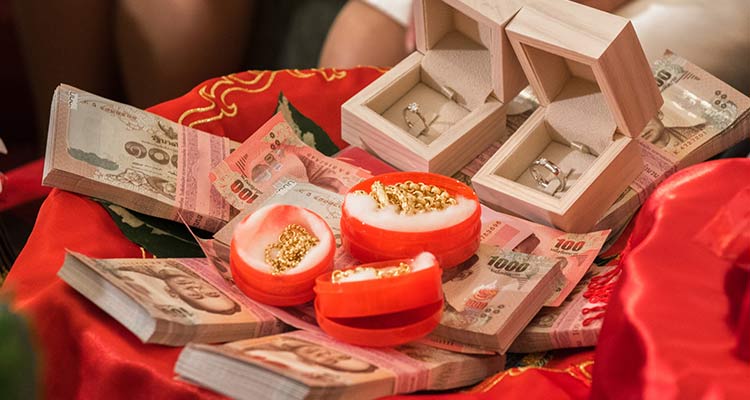In certain cultures and societies around the world, it is customary for women to pay dowries to their husbands or their husbands’ families as part of marriage traditions.
This practice contrasts with more commonly known customs where the groom or his family pays a dowry or bride price to the bride’s family.
Below are the five countries where women pay husbands’ dowry:
- India
India is one of the countries that practices this culture for a long time. When a woman is set to marry, the bride’s family provides gifts or money to the groom’s family as a dowry.
2. Kenya
In some communities in Western Kenya, such as Luhya, there are variations in dowry customs where the bride’s family contributes items or money to the groom’s family.
During their traditional wedding, the bride is expected to hand over the dowry to her husband’s father, which can be in cash or kind.
3. Rwanda
In Rwanda, the tradition of “Gusaba” involves the bride offering a dowry to the groom’s father during the marriage negotiations.
It is a ceremonial process where the bride’s family formally requests the groom’s family for his hand in marriage and presents the dowry as a sign of respect and appreciation.
The dowry may include items such as livestock, clothing and household goods. It reflects the bride’s readiness for marriage and her family’s acknowledgment of the groom’s family.
ALSO READ: FULL LIST: Countries where Binance operations is banned, restricted
4. Cameroon
Among the Bamileke and Beti ethnic groups, the dowry system often involves the bride providing gifts or money to the groom’s family.
The dowry may vary in form, including livestock, money, clothing, or other valuable items.
It serves as a symbol of respect and gratitude from the bride’s family to the groom’s family for accepting her into their household.
The amount can depend on various factors such as the social status of the families and the perceived value of the bride.
5. Mauritania
In traditional Mauritanian society, the dowry, known as “mahr”, is typically provided by the bride to the groom or his family.
The mahr could include money, jewelry or other valuable assets. It is meant to serve as financial security for the bride and demonstrates the groom’s commitment to support her.
NIGERIAN TRIBUNE
